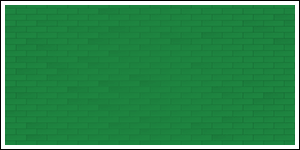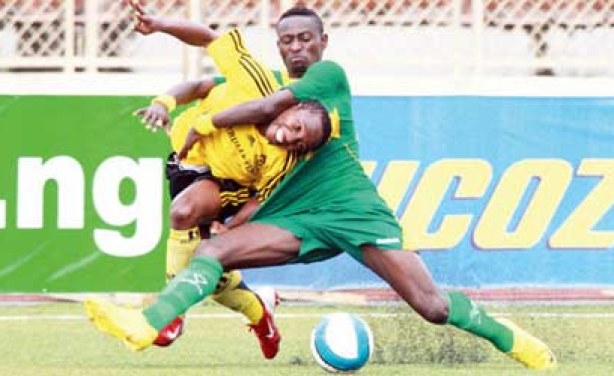
A whopping 67% of Nigerians view Football, which demonstrates how much the sport affects Nigerian culture. Football's journey in Nigeria began over 100 years earlier, forming the nation's sporting
landscape.

Football in Nigeria go back to the early 1900s. British colonisers brought the sport to the country in 1904. The first taped football match occurred that very same year, beginning Nigeria's abundant footballing
history of football in nigeria.

By 1950, Football had ended up being Nigeria's nationwide game. Its fast increase resulted in many clubs and associations forming in the early 1900s. This development boosted Nigerian pride and assisted inspire political freedom movements.
Nigeria's football legacy now reaches beyond its borders. Throughout the years, the country has actually produced first-rate skill, and Nigerian youth groups have won the FIFA U-17 World Cup 5 times.
The Super Eagles, Nigeria's national team, are a force in African Football. They typically get approved for significant competitions and make their mark worldwide.
The British Colonial Introduction of Football to Nigeria
Football showed up in Nigeria throughout the British colonial age. It quickly recorded the hearts of locals, marking the start of a rich footballing tradition in the country.
The First Football Match in 1904
The first football match in Nigeria occurred in June 1904. It was in between Hope Waddell Training Institution and the team of HMS Thistle. The Nigerian group won 3-2, triggering a nationwide passion for the sport.
Hope Waddell Training Institution vs HMS Thistle
I hope the Waddell Training Institution in Calabar played a crucial function in early Nigerian Football. Their victory over HMS Thistle's team revealed the talent of Nigerian players. This match set the stage for Football's development in the nation.
Early Football Club Formation (1906-1932)
After the 1904 match, Football's appeal soared. From 1906 onwards, early
football clubs began forming, and this grassroots movement spread the sport throughout Nigeria.
The Lagos District Amateur Football Association (LDAFA) was established in 1932. The LDAFA marked the start of organised Football in Nigeria and led the way for the sport's future success nationally and globally.
Who Introduced Football in Nigeria
Football showed up in Nigeria in the early 20th century. British colonisers brought this precious sport to the West African nation. It rapidly became a passion that shaped Nigeria's sporting landscape for generations.
Role of British Colonisers
British colonisers played an essential role in Nigeria's football
history of football in nigeria. The very first recorded match happened in June 1904. Hope Waddell Training Institution dealt with the crew of HMS Thistle.
The Nigerian team won 3-2. This success marked the beginning of an abundant football legacy in the nation.
Formation of First Football Association
The Lagos District Amateur Football Association (LDAFA) was developed in 1932. It laid the groundwork for organised Football in Nigeria, which paved the way for the
Nigerian Football Association (NFA).
The NFA was founded in 1945. It became the national governing body for Football and manage its development across the nation.
Development of Local Football Culture
Football quickly settled in Nigeria, ending up being the national sport by 1946. Its availability and simple guidelines assisted it spread out rapidly. Regional communities embraced the game, forming their teams.
This grassroots interest laid the structure for Nigeria's future success. The country's passion for Football grew, leading to accomplishments on the worldwide phase.
"Football became more than just a sport; it developed into an important Nigerian culture and identity aspect."
The British colonisers' intro of Football sparked a sporting transformation in Nigeria. Football's journey mirrored the nation's development from the very first match in 1904 to the development of the NFA in 1945.
Today, Football stays an integral part of Nigerian life. It's a testament to the sport's enduring appeal and cultural significance in the nation.
The Rise of Nigerian Football Administration
The Nigerian Football Association (NFA) was established in 1945. It played a vital function in shaping Nigerian Football. In 1949, the NFA formed Nigeria's very first nationwide football group.
In 1959, Nigeria joined the
Confederation of African Football (CAF), which permitted it to take part in continental competitions. Nigeria likewise ended up being a FIFA member in 1960, signing up with the global football community.
The NFA, later relabelled the Nigeria Football Federation (NFF), organised national competitions. They produced the Nigerian Premier League and the Federation Cup, which became the highlights of domestic Football.
Football associations throughout Nigeria flourished under the NFF's guidance. They supported skill and promoted grassroots development. Expert Football started in 1990 with sixteen club sides getting involved.
"Our mission is to restore
football development at the national level and repackage the league in line with global best practices," mentions the
Nigeria National League.
The Premier League was executed in 2003. This relocation intended to improve domestic football standards and draw in more viewers and sponsors to national competitions.
Nnamdi Azikiwe's Impact on Nigerian Football
Nnamdi Azikiwe, born in 1904 in Zungeru, Northern Nigeria, left an indelible mark on Nigerian Football. His influence shaped the nation's sporting landscape. Azikiwe's enthusiasm for sports came from his diverse experiences and education abroad.
Establishment of Zik's Athletic Club
In 1938, Azikiwe established Zik's Athletic Club (ZAC) in Lagos. This club became a symbol of African self-determination. ZAC played a crucial function in developing Nigerian Football.
It supplied a platform for young
professional football league athletes to display their abilities. The club promoted regional talent and promoted a
sense of national pride.
The West African Pilot's Influence
Azikiwe's newspaper, the West African Pilot, played a significant role in popularising Football across Nigeria. It thoroughly covered local matches, group news, and player profiles. This media attention helped grow the sport's fan base.
Football as a Tool for Independence
Azikiwe saw Football's prospective as a unifying force in the self-reliance motion. He utilized the sport to break down ethnic barriers, and Football
became a symbol of Nigerian unity through his advocacy.
Azikiwe's efforts linked Football to nationalism, contributing substantially to the sport's growth and forming its role in modern-day Nigeria.
"Football is not simply a video game; it's an effective national unity and identity tool."
Nigeria's Journey to International Football Recognition
Nigeria's football journey took a substantial leap forward in 1960. The country got FIFA subscription, marking its entry into global Football. This milestone accompanied Nigeria's independence from British rule.
FIFA Membership and First International Match
Nigeria's very first international match happened on 8 October 1949. They faced Sierra Leone and won 2-0 in a historical encounter. This triumph stimulated enthusiasm for Football across the nation.
Early Continental Competitions
Nigeria debuted in the Africa Cup of Nations in 1963. The
competition, hosted by Ghana, saw Nigeria facing hard opponents. These experiences proved important for the group's growth.
Nigeria's determination settled in 1973. They clinched gold at the All-Africa Games, marking their very first significant continental success. 1976, they secured bronze at the Africa Cup of Nations in Ethiopia.
Nigeria's football prowess grew in the 1970s. In 1978, they repeated their bronze medal feat in Ghana. 1980,
Nigeria hosted and won its first Africa Cup of Nations title.
Development of Nigerian Football Governance
Nigerian football governance has seen considerable changes and obstacles given that 1945. The Nigeria Football Federation has shaped the country's football landscape, and its journey has actually been complicated and transformative.
From NFA to NFF
The Nigeria Football Association started in 1945. It ended up being the Nigeria Football Federation in 2008. This change intended to modernise the organisation's structure.
In 2019, an expense was passed to acknowledge the NFF formally. It's still awaiting presidential approval.
Advancement of League Systems
The NFF manages 3 main leagues: the Nigerian
Premier League, Amateur League, and Women's League. These competitions form the foundation of Nigerian Football.
They promote skill and promote the sport nationwide. However, obstacles like delayed seasons and place disputes persist.
National Team Formation
Nigeria's Super Eagles national team was formed in 1949. They've qualified for six FIFA World Cups and won three Africa Cup of Nations titles.
These achievements have improved Nigeria's standing in international Football. The Super Eagles' success has put
Nigeria on the worldwide football map.
However, Nigerian Football deals with ongoing obstacles. A study revealed high levels of corruption in football governance. This affects contract awards and
confederation of african football gamer choice.
These concerns highlight the need for reform. For the sport to prosper, openness in the Nigerian football administration need to enhance.
Conclusion
Nigerian Football's tradition showcases the country's strength and passion. It began in 1904 with Hope Waddell Training Institute facing HMS Thistle. Since then, Nigeria has actually ended up being a powerhouse in African Football.
The sport's growth shows the nation's journey from colonial rule to independence. It has actually fostered a sense of national identity and unity. Nigeria's global football recognition is indisputable.
The Super Eagles' gold medal at the 1996 Atlanta Olympics is a highlight. Their remarkable FIFA World Cup
efficiencies also stick out. Nigeria has qualified for 6 World Cups.
In 1994, Nigeria achieved its greatest FIFA ranking of 5th, strengthening its put on the worldwide phase. Nigerian Football continues to progress with promising prospects.
Skills like Ahmed Musa and Kelechi Iheanacho shine in top European leagues. This bodes well for the sport's development. The Nigeria
professional football league Federation guides the video game's progress.
Football's sustaining tradition in Nigeria inspires upcoming generations and promises an exciting future for the sport. The gorgeous video game stays a source of national pride and unity.
FAQ
Who presented football to Nigeria?
British colonisers brought Football to Nigeria in the early 1900s. The sport rapidly became popular and woven into Nigerian culture.
When was the first football match played in Nigeria?
The first documented football match in
nigeria national occurred in June 1904. Hope Waddell Training Institution bet the HMS Thistle crew. The Nigerian group won 3-2.
How did Football end up being Nigeria's national sport?
Football's simple guidelines and ease of access made it popular in Nigeria. By 1950, it was the nationwide video game, inspiring pride and freedom movements.
What role did Nnamdi Azikiwe play in Nigerian Football?
Nnamdi Azikiwe, Nigeria's first President, was important in establishing Football. He started Zik's Athletic Club in Lagos in 1938, and his newspaper, the West African Pilot, linked Football to the self-reliance motion.
When did Nigeria sign up with FIFA?
Nigeria became a FIFA member in 1960, the exact same year it gained independence. This significant Nigeria's official entry into
international football governance.

What is the Nigerian Football Federation?
The Nigerian Football Federation (NFF) governs Football in Nigeria. It progressed from the Nigerian Football Association, developed in 1945. The NFF organises national leagues and competitions, consisting of the Premier League and Federation Cup.
What major successes has Nigerian Football achieved?
Nigeria has played in 6 FIFA World Cups. The Super Eagles national team has won 3
African Cup of Nations. They've likewise won gold in the 2nd All-Africa games.
